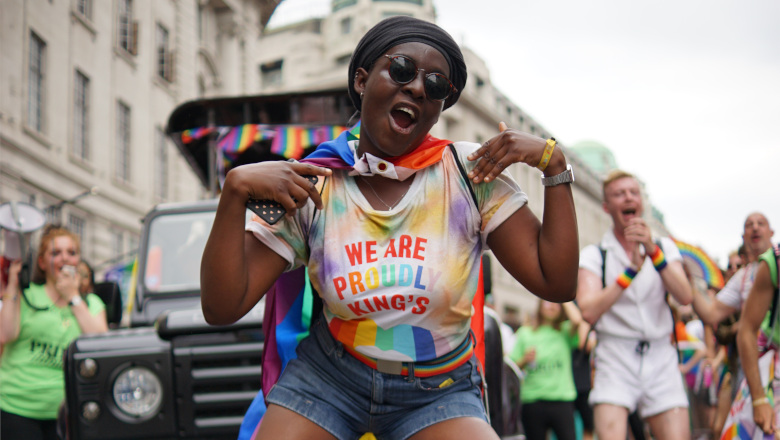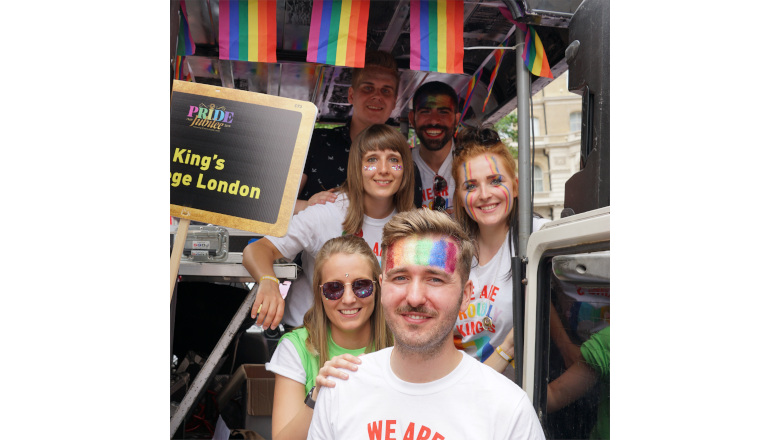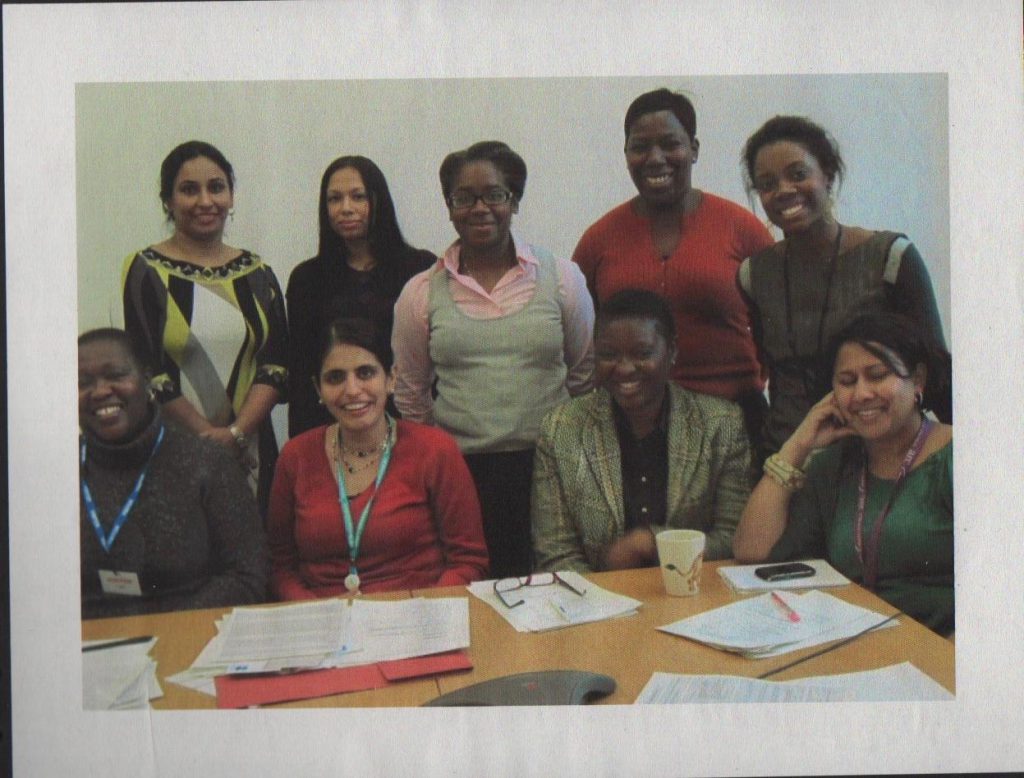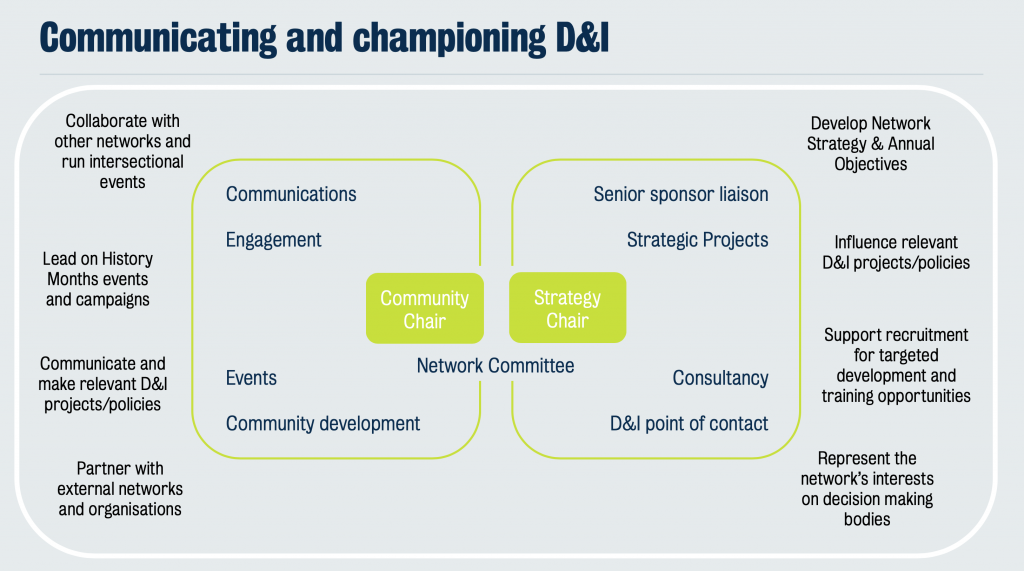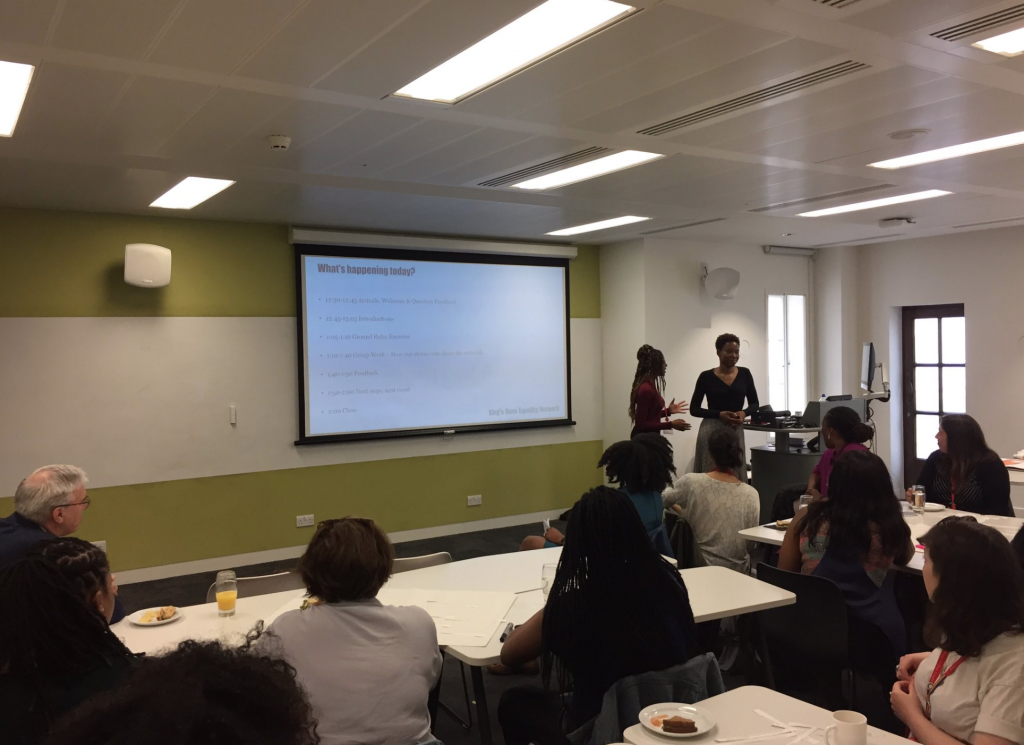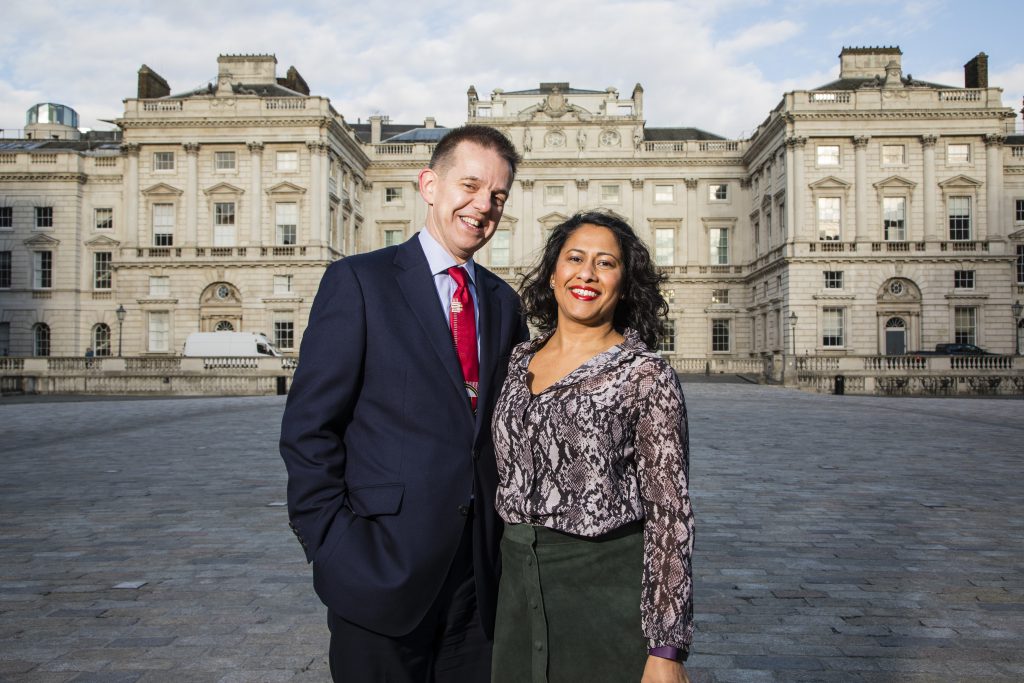Sarah Guerra – Director, Diversity & Inclusion
As Director of Diversity and Inclusion at King’s College London here for my first Black History Month – the 30th anniversary of Black History Month in the UK, no less – I thought it would be timely and pertinent to provide some personal and professional reflections on my own ‘black’ history as part of this month’s blog post.
I’ve spoken at several events this month, most of which focussed on the themes of ‘being a BME leader’ or ‘My Personal Journey’ as a BME senior figure. As part of my preparations, I put together this mindmap culminating the trajectory of my thoughts and experiences. I find mindmaps a helpful tool to clarify and visualise my thinking, although in this case its really more of a a spider’s web because everything is interconnected.
When reflecting on my life story, I’ve tended to be humble and played down certain aspects, however now that I’ve been asked to consider and speak about myself as a BME leader I have reflected on how unusual and frankly remarkable I am. I don’t say that to ‘big myself up’ but more as a sad reflection on the under-representation of people of colour in the senior echelons of British workplaces.
Why do I say I am unusual and remarkable? I was born in Tottenham. I was state educated. I am ‘Black’. These are the fragments of my identity and how I have come to identify myself. Growing up I struggled to identify or describe myself – I’m not technically black – I am brown. But then I discovered ‘blackness’ as a political concept and it felt right and empowering to adopt that label.
Following my graduation, I joined the Civil Service fast stream in 1995. There were thousands of applicants and I was one of the very few people of colour selected. In my particular cohort at Inland Revenue, out of the 20 people selected to work there, I was the only one who was BME – and now here I am, working in a position of influence at a globally renowned institution.
That’s rare!
Reading the Guardian the other week, it was reported that out of 535 senior officials within British universities who declared their ethnicity, 510 were white, 15 were Asian and 10 were recorded as “other including mixed”. I probably wasn’t here when that data was collected so let’s say its 11 now. 1 out 11 – notice any patterns? In 2017 we should all be shocked at that data! I shouldn’t be or feel unusual or remarkable simply because of the colour of my skin.
Before I go further it’s important to recognise – because it is easy to lose this – people of colour bring enormous talent and positive contribution to the world (see the talent sector in my mindmap). I have a range of personal strength and professional talents: strategic thinking, understanding how organisations work, enabling change in a way that is effective and sustainable, listening to people and translating their words into meaningful organisational actions. I have particular characteristics and qualities – I’m curious, I care, I’m determined and I work hard. I’ve worked hard on myself through professional development, feedback and therapy. If I don’t understand something – I work to or if I think something isn’t working, I work to fix it. These are skills and capabilities – they make me effective. They make me a leader, role model and well worth employing. What these qualities don’t do is make me that special. Many, many people of all shades have these qualities. However in the past, my particular shade has held me back. How do I know? Of those 20 people who joined Inland Revenue back in 1995, I was pretty much the only one who wasn’t promoted into the Senior Civil Service. And yet, as King’s has proven, it’s clear I have senior leadership ability.
It may be uncomfortable for some to think that in this society, race remains a factor that can hold someone back professionally, however I do think my identity has had a big impact on how successful or not my career has been and how I have ended where I am
So, obviously as with all of us, I am all sorts of things (see the identity section of my mindmap) – but when thinking about ‘who’ I am it condenses into a few clear categories:
A black woman and a working parent from a working-class background.
Whilst I no longer see being black or from a working-class background, or a working parent, as things that hold me back – the fact is they absolutely have the potential to in any given situation. Key to where I am now was the juxtaposition between my own drive to succeed and the high aspirations and expectations set for me by my parents and the contrastingly low expectations held by practically every other institution I encountered – school, sixth form, university and Civil Service.
At the age of 16, I was told at that A Levels weren’t for people like me, despite being top set. At 18 I was told that university wasn’t for me and that I should consider something more practical and vocational. After university I applied for thousands of jobs in the legal profession to no avail… these are just a few of my war wounds.
Realising the contrasts of the expectations that were placed on me and the impact of this in overcoming barriers and confounding those expectations have personally driven my passion for challenging injustice, working to ensure that others do not have to face the same frustrations. Just as importantly, I’m committed to working to change systems that discriminate or marginalise (intentionally or otherwise) and to helping organisations recognise what they are missing and create solutions. These are a key part of what led me into diversity and inclusion work. It’s trite but I really do want to make a difference and want the world to be fair!
For me, I don’t like to lose or to be told that I can’t have what my talent deserves. The experience of having to fight and having nothing come easy has shaped my whole life experience, and I believe, has made me a far more engaged and valuable employee.
I started work at 13. I’ve always had the emotional support of my family but they weren’t always in a position to support me financially. That early life experience of having to ‘get by’ and work in all sorts of places was invaluable to building my empathy and resilience. The Civil Service gave me so much opportunity, the ability to try all sorts of roles – maybe at least 4 different ‘professions’, learn and develop and test out skills. It was also an amazing grounding in the value and impact of public policy and how ‘systems’ really work. Following the Civil Service, I worked for a Trade Union which unleashed my passion, my campaigning and organising spirit and at the same time developed my technical knowledge around every aspect of employment law. I trot you through that, I guess, to show that you don’t know what experience someone has or what they can do- by simply looking at their wrapper.
Black History Month helps us realise that many, many people’s contributions are unseen, unrecognised and undervalued. That we have been socially conditioned to see the world through certain lenses and we need to be able to see so much more in each other, which is what I see as the heart of diversity and inclusion work.
There’s a section on the mindmap that I’ve labelled ‘random things’. I’ve called them random but really they aren’t, rather they’re well known issues and quite obvious ones for us to address! Especially during Black History Month.
Racism and sexism are prevalent everywhere.
They manifest differently and aren’t always obvious or in your face – but they are there. I could tell countless personal stories, both from long ago and in recent years, all of which have had an impact on the way I face the world as a black woman.
Those of us that have been victims hold the scars and they run deep. A single negative experience casts a long shadow. In addition, it erodes trust and goodwill. It leads people to interpret things that happen differently – through a different less forgiving lens.
Would it shock you to hear that in coming here to King’s I spent as much time thinking about how to ensure I wasn’t cast as the ‘angry black woman’ or the pink and fluffy inconsequential D&I diva? That on a regular basis I consider what I say and how it might be interpreted and what possible unconscious/sub conscious/stereotyping reaction people may have towards me? As I do about what needs doing?
The weight of these various considerations that I have to make on a daily basis is something I think those in the majority and those that have always been accepted find difficult to comprehend or believe. This is really the heart of what institutional racism and sexism are. I see a big part of my role here at King’s and my contribution to ‘history’ being to help the institution understand that as individuals and understand how we mitigate it to create the extraordinary student and staff experience Vision 2029 articulates.
I’d like to reflect on the difference I feel working at King’s College London compared to the previous employers and why I am so hopeful for the future. The very fact that my post has been created and been given such a platform and power is a huge step and demonstration of institutional commitment. It contrasts directly to a similar role I held at the Ministry of Defence where – recruited to similar portfolio, I sat at a more junior level, with no resources to speak of, limited organisational support and crucially ‘people like me’ weren’t supposed to speak to the most senior leaders. Those initial barriers just haven’t existed at King’s. Autonomy to set the agenda – the positivity with which my expertise is welcomed and the leadership endorsement and support I have been given means I feel so motivated and hopeful for the future. Every day I feel valued and valuable, I see and feel the impact of my work and the difference I am making.
To sum up, my personal journey has led me to recognise my strengths, know who I am and what I stand for, led me to apply myself and take opportunities and I don’t pretend the world is fair. This Black History Month I’d urge everyone at King’s and particularly leaders and managers to do all those things and also examine how you interact with people – who you know, who you listen to, who you favour – you can address the unfairness – you can help it but you have to notice and act.
Happy 30th Black History Month. Maybe one day we will get to the place where all cultures and identities are given equal focus in the way history is recorded and we won’t need the ‘special’ focus.
